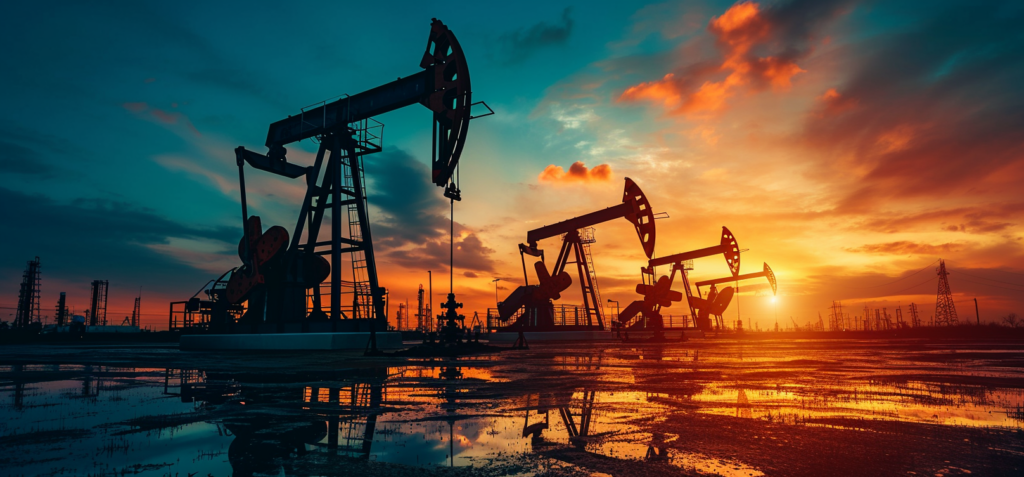Petroleum engineers are highly skilled professionals who oversee the systems that extract oil and gas from deep beneath the earth’s surface. They’re involved in every stage of the process, from exploration and drilling to production and optimisation. Their duties also include breaking down the costs of drilling, and developing the most efficient techniques to extract the gas or oil.

Educational Requirements and Qualifications
Necessary Degrees and Certifications
For a petroleum engineer a solid foundation in engineering is non-negotiable. A bachelor’s degree in Petroleum Engineering is ideal, but degrees in Mechanical Engineering, Chemical Engineering, or other related disciplines are also well-regarded. A bachelor’s degree would typically include coursework in maths, geology, physics, thermodynamics, biology and chemistry.
But to truly stand out and pursue a leadership position, you’ll need a master’s degree or PhD. These advanced degrees will enhance your career prospects, and can also open doors to research, teaching and development roles.
Relevant Courses and Training
Continuous learning is the cornerstone of a successful career in petroleum engineering. Mobility Oil & Gas offers an extremely valuable course in this regard. Our Gas Lift Systems Design, Operation, and Optimisation course is a prime example of the specialised training that can propel your career forward. This intensive 5-day course (see more below) will equip you with the latest techniques, practical skills and in-depth knowledge of gas lift systems, a crucial technology for maximising oil and gas production.
Key Skills and Competencies
As was the case with qualifications, as a petroleum engineer you’ll need an comprehensive and specialised skill set:
Technical Skills
- Reservoir Engineering: Understanding the complex dynamics of subsurface reservoirs, predicting production behaviour, and developing strategies to optimise recovery.
- Drilling and Completion Engineering: Grasping the intricacies of well-design, drilling techniques, and well-completion methods to ensure safe and efficient operations.
- Production Engineering: Expertise in optimising production processes, managing artificial lift systems (including gas lift), and troubleshooting production challenges.
- Software Proficiency: Utilising industry-standard software for reservoir simulation, production modelling, and data analysis to make informed decisions.
Soft Skills
- Problem-Solving: Identifying and resolving complex technical and operational issues that arise during exploration, drilling, and production.
- Critical Thinking: Analysing data, evaluating options, and making sound and informed decisions that impact project outcomes.
- Communication: The ability to effectively convey technical information to diverse audiences, collaborate with multidisciplinary teams, and write clear and concise reports is essential.
- Leadership and Project Management: Guiding teams, managing projects from conception to completion, and ensuring adherence to timelines and budgets will be a crucial part of your remit.
Job Responsibilities and Daily Tasks

No one day is the same in the busy life of a petroleum engineer! Each day brings its own challenges, rewards and interactions. Some daily activities include:
- Exploration and Appraisal: Evaluating the potential of oil and gas reservoirs through geological and geophysical data analysis.
- Well-Planning and Design: Developing comprehensive plans for drilling and completing wells, and selecting optimal drilling techniques and equipment.
- Drilling Supervision: Overseeing drilling operations on land or offshore rigs, and ensuring safety and environmental compliance.
- Production Optimisation: Implementing strategies to maximise production from existing wells, and utilising techniques like artificial lift and reservoir stimulation.
- Reservoir Management: Monitoring reservoir performance, conducting simulation studies, and developing long-term production plans.
Salary Expectations and Career Growth
The petroleum engineering field offers lucrative career paths with substantial earning potential. In the United Kingdom, the average salary for a petroleum engineer is around £74,000 per year.
Even entry-level engineers can expect competitive salaries, typically ranging from £34,000 to £61,000 per year. As they gain experience and expertise, petroleum engineers can earn between £64,000 to £105,000 per year, with variations based on location and experience.
Experienced petroleum engineers may earn significantly more, while freelance engineers can earn over £1,000 per day during high-demand periods.
Career Advancement Opportunities
With experience and additional qualifications, petroleum engineers can advance to senior engineering roles, project management positions, or specialise in specific areas like reservoir engineering or drilling engineering. Some may even transition into leadership or executive roles within oil and gas companies or consulting firms.
How the Gas Lift Systems Design, Operation, and Optimisation Course Can Help
Our Gas Lift Systems Design, Operation, and Optimisation Course is a game-changer for both aspiring and experienced petroleum engineers. It’s a powerful tool for accelerating your career growth as a petroleum engineer. It will demonstrate your commitment to professional development and position you as a sought-after expert in the field, and also will provide you with:
- In-Depth Knowledge: A comprehensive understanding of gas lift principles, design, operation and troubleshooting.
- Practical Skills: Hands-on experience in designing and optimising gas lift systems for enhanced production.
- Troubleshooting Expertise: The ability to diagnose and resolve common gas lift problems, a vital skill.
- Industry Insights: Exposure to real-world case studies and best practices from experienced professionals.
Course Content and Benefits
The Gas Lift Systems Design, Operation, and Optimisation course offers comprehensive content covering the fundamental principles, design procedures, and practical applications of gas lift technology in the oil and gas industry. Participants will gain in-depth knowledge of:
- Gas Lift Fundamentals: Introduction to gas lift, well-inflow performance, and gas lift equipment.
- Continuous Gas Lift Design and Optimisation: Principles, formation deliverability, and step-by-step design procedures.
- Gas Lift Completion Types and Valve Mechanics: Overview of completions, valve mechanics, and force balance equations.
- Troubleshooting and Software Applications: Troubleshooting continuous gas lift, design procedures, and software applications like Prosper.
The course also includes real-world case studies and practical examples to demonstrate the application of gas lift technology in various scenarios, enhancing participants’ understanding and problem-solving abilities.
Enhancing Career Prospects
By participating in this course, petroleum engineers and professionals in the oil and gas industry can significantly enhance their career prospects. The course equips them with:
- Improved Technical Knowledge and Practical Skills: Gain a deeper understanding of gas lift systems, their design, operation, and optimisation, enabling them to make informed decisions and solve complex problems in the field.
- Competitive Edge in the Job Market: The specialised knowledge and skills acquired in the course make participants more attractive to employers seeking expertise in gas lift technology.
- Enhanced Problem-Solving and Decision-Making Abilities: The practical examples and case studies presented in the course help participants develop critical thinking and problem-solving skills, essential for success in the oil and gas industry.

Frequently Asked Questions (FAQs)
What educational background is required to become a Petroleum Engineer?
A bachelor’s degree in Petroleum Engineering is the most direct path, but degrees in Mechanical Engineering, Chemical Engineering, or related fields are also acceptable. A master’s degree or PhD can be even more valuable assets for your career advancement and specialisation.
How does Mobility Oil & Gas’s Gas Lift Systems Course benefit my career as a Petroleum Engineer?
Our course gives you specialised knowledge and practical skills in gas lift technology, a crucial aspect of production optimisation. This will make you a more valuable asset to employers and open doors to further career advancement.
What are the primary responsibilities of a Petroleum Engineer?
Petroleum engineers have diverse responsibilities, including reservoir characterisation, well planning and design, drilling supervision, production optimisation, and reservoir management. Their responsibilities stretch across the entire field of oil and gas development.
What is the average salary for a Petroleum Engineer?
Salaries vary based on experience, qualifications, and location. Entry-level engineers can expect to earn between £34,000 and £61,000 annually, while experienced engineers can earn upwards of £65,000 or significantly more.
What are the career advancement opportunities for Petroleum Engineers?
Petroleum engineers can advance to senior roles such as Senior Petroleum Engineer, Reservoir Engineer, Drilling Engineer, Production Engineer, and Petroleum Engineering Manager.
What are the most important skills for a Petroleum Engineer?
A combination of technical and soft skills is essential. Technical skills include reservoir engineering, drilling and completion engineering, production engineering, and software proficiency. Soft skills such as problem-solving, critical thinking, communication, and leadership are equally important for success in this field.
What is the job outlook for Petroleum Engineers?
Despite the shift towards renewable energy, the demand for petroleum engineers remains strong. The need to optimise production from existing fields and explore new resources ensures a continued demand for skilled professionals in this field.
Secure your spot and embark on a transformative learning journey.
Enroll in our Gas Lift Systems Design, Operation, and Optimisation course today and become a sought-after expert in this critical field.
